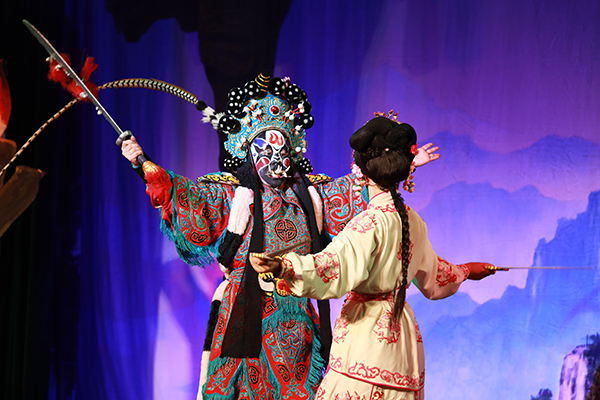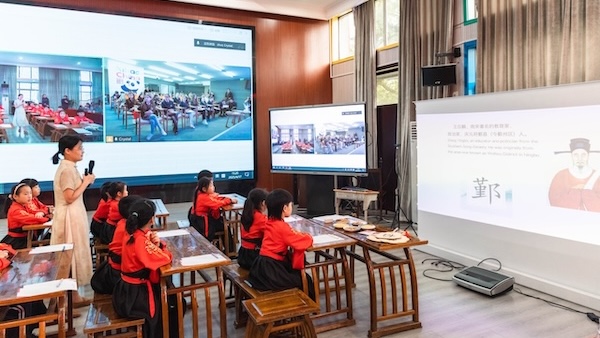Taken to tusk: preserving the art of shuaya
"Teeth play" and face-changing in Sichuan Opera is together known as xiliandongya ("face in the West and teeth in the East"). Shuaya is just a part of pingdiao, which dates back to the 17th century and has about 400 tunes in its repertoire, and lyrics are sung in the local dialect. Traditionally, the music is played with drums and bronze gongs, meaning a loud, noisy performance, but contemporary recitals include stringed instruments such as the erhu, violin and cello.
The themes of the plays usually revolve around social ethics and family relationships.
Xue, 37, joined Ninghai Xiaobaihua Yueju Opera Troupe when she was 16, being taken on with nine other apprentices by Ye Quanmin, a fifth-generation exponent of the art.
"It was very hard at first," Xue says. "I started practicing with two teeth, and wore them almost all the time, except when I was eating or sleeping."

Xue Qiaoping performs "teeth play" in a pingdiao opera, Jinlian Zhanjiao ("Jinlian fights the dragon") in Jiujiang village, Ninghai county, Zhejiang province, on Feb 8. ZHU XINGXIN/CHINA DAILY
Xue recalls that she lost around 5 kilograms because her mouth was sore and bleeding, which made it hard to eat. Nevertheless, she persevered in her training, eventually mastering the skill and becoming a frequent stage performer.
"Shuaya is our heritage and our treasure, and I feel it is my duty to play it well and to pass it on to others," says Xue, who can now play with 10 teeth, and whose pingdiao performances have taken her to Europe, the United States and Japan.
At a performance in Aachen, Germany, which is a "sister city" of Ningbo, audiences seemed to recoil with fear, "frightened by my teeth", Xue says.

 Ningbo seabird project seeks international volunteers
Ningbo seabird project seeks international volunteers  Jakub's journey: From shipyard to sea
Jakub's journey: From shipyard to sea  Badminton Asia COO applauds Ningbo
Badminton Asia COO applauds Ningbo 


